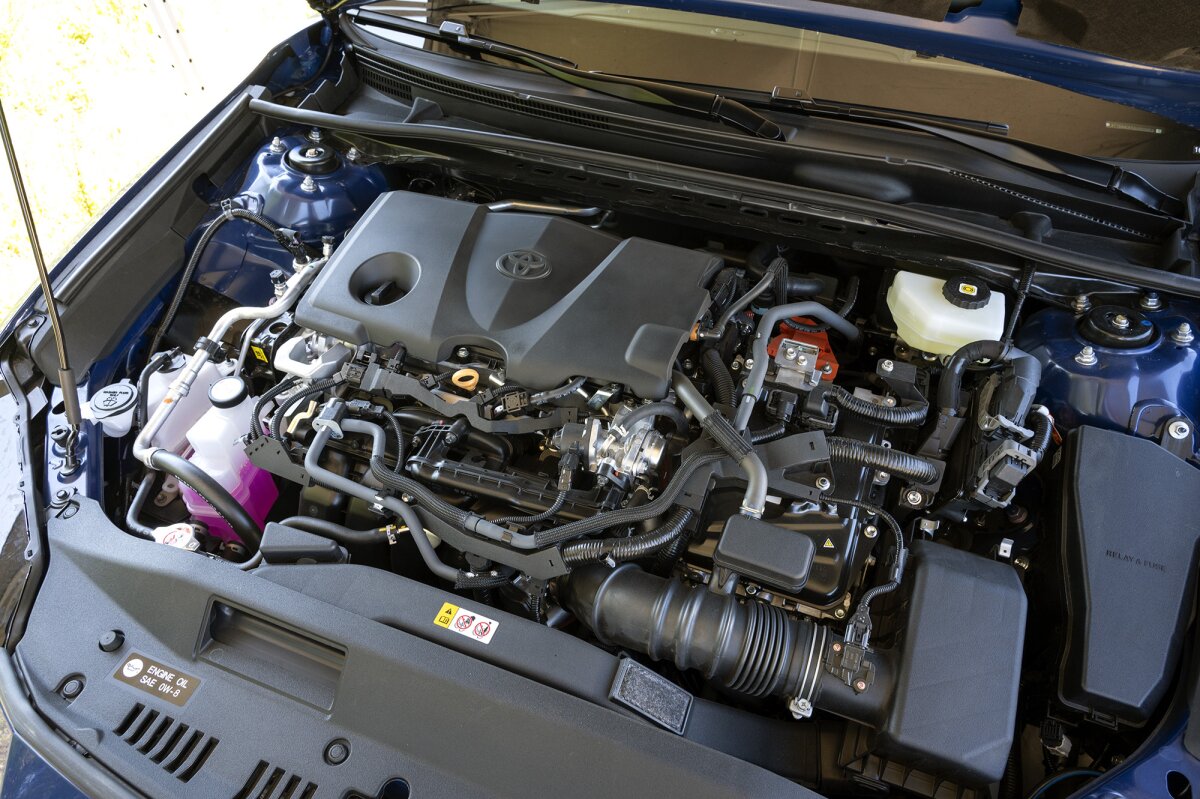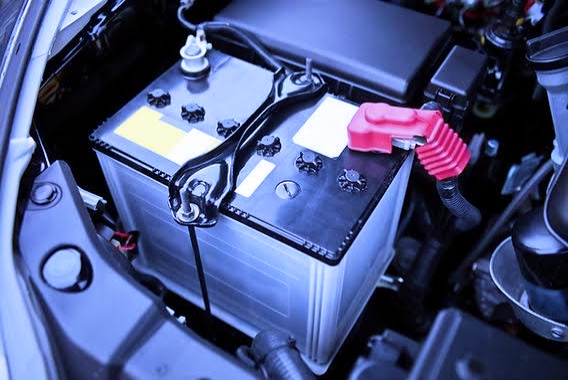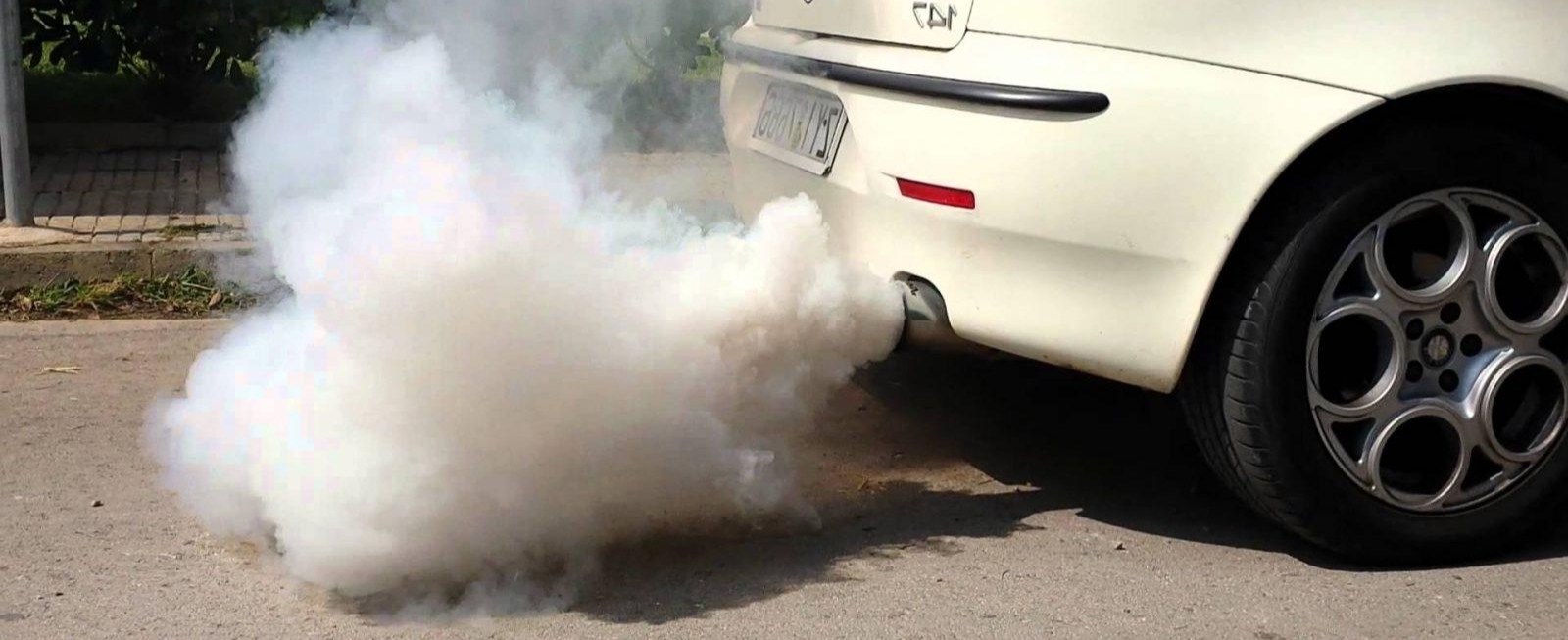Car/Vehicle Maintenance
How to Maintain your automatic transmission vehicle

If you drive an automatic transmissions vehicle, this article is for you.
It has come to the attention of a highly esteemed car mechanic, Scotty Kilmer, that a particular error in driving habits may result in catastrophic consequences for the transmission system.
Mr. Kilmer, a renowned figure in the automotive industry, has garnered a substantial following on the video-sharing platform YouTube, where his informative content has amassed an impressive number of likes exceeding 200,000.
In a recent instructional video posted on his channel, Mr. Kilmer conscientiously highlighted five common mistakes frequently observed among drivers, emphasizing the imperative need for heightened awareness and caution.
Driving through deep water
Among these errors, the mechanic specifically cautioned against the peril of driving through deep bodies of water.
Such an action, if undertaken, poses a significant risk of water infiltrating the transmission mechanism, thereby causing irreparable damage to this vital component of the vehicle.
It is therefore strongly advised that individuals exercise prudence and refrain from driving through deep water to prevent the potential obliteration of the transmission system.
Scotty said: “You never want to drive an automatic car through deep water and here’s why.
“You have to have vents on automatic transmission as the fluid gets hot and expands, and contracts to release pressure.
“If you go through water that will suck water into the transmission – water and automatic do not go together.
“If you get water in your automatic transmission sometimes you get lucky and flush it out – but often it will destroy the entire transmission and you’ll need a new one.”
Switching from drive to reverse gear
Switching from drive to reverse while the vehicle is in motion can cause the car to stall and may lead to a slight grinding sound.
Many newer cars now have an inhibitor, but for those who buy used cars, caution is advised as not all of them come with this feature.
“Never accidentally have your car go from drive into reverse while the cars moving. Make sure you don’t accidentally hit it and rip it into reverse while you’re driving down the road because it will destroy the transmission,” Scotty warned drivers
Leaving the car in drive
The mechanic advises drivers not to keep their car in drive for an extended period of time when idling.
“Leaving it in drive if you’re idling for a long time […] can lead to overheating of the inside of the transmission, if you going to be sitting there for a long time just shut the car off or at least put it into Park,” he warned.
Doing a Burnouts
The mechanic, a knowledgeable professional in the field of automotive maintenance, took the opportunity to enlighten the audience on the detrimental effects of burnouts.
Burnouts, a practice where a vehicle remains stationary while its wheels spin rapidly, were highlighted as a particularly harmful activity for drivers.
The mechanic strongly advised all drivers to exercise caution and refrain from engaging in such behavior.
It was emphasized that burnouts are considered to be among the most damaging actions one can subject an automatic vehicle to.
Therefore, it is imperative that drivers make a concerted effort to steer clear of this practice in order to preserve the optimal functioning and longevity of their vehicles.
Neglecting to replace transmission fluid
It is a common belief among some manufacturers that the replacement of transmission fluid in certain newer car models may not be necessary.
However, it is imperative to note that this assertion is unsubstantiated.
While it is true that contemporary vehicles are equipped with synthetic fluid that exhibits enhanced heat resistance and reduced breakdown tendencies.
It is essential to acknowledge that over time, this fluid will inevitably deteriorate. Automatic transmission.
Yes, modern cars use synthetic fluid that can handle heat better and break down less, but eventually it does break down,” he says.
Therefore, it is strongly advised to adhere to a regular maintenance schedule that includes the replacement of transmission fluid every 60,000 to 80,000 miles.
By following this recommendation, you ensure the optimal performance and longevity of your vehicle’s transmission system.
Failure to replace the transmission fluid at appropriate intervals may lead to diminished efficiency, increased wear and tear, and potentially costly repairs in the future.
It is in the best interest of your vehicle’s overall health and functionality to prioritize the timely replacement of transmission fluid as part of your routine maintenance regimen.
Car/Vehicle Maintenance
5 Reasons Why Your Steering Wheel Might Vibrate at Highway Speeds

You’re cruising comfortably on the Lagos-Ibadan Expressway, music on, speed steady at 100km/h then suddenly, your steering wheel begins to vibrate.
Also Read: Why Do Drivers Sleep on Steering While Driving?
 At first, it feels like a mild shake, but as you accelerate, the vibration worsens, making the entire driving experience uncomfortable, even frightening.
At first, it feels like a mild shake, but as you accelerate, the vibration worsens, making the entire driving experience uncomfortable, even frightening.
This isn’t just a nuisance. A vibrating steering wheel can signal serious underlying problems with your car problems that could put your safety at risk if ignored. According to the Federal Road Safety Corps (FRSC), poor vehicle maintenance and mechanical faults account for nearly 10% of road crashes in Nigeria. Steering vibrations often fall into this category.
At RoadKing.ng, we believe every motorist should understand what causes these vibrations and how to fix them. Below, we break down the five most common reasons your steering wheel shakes at highway speeds and what you can do about them.
1. Unbalanced Wheels
One of the most common culprits behind steering wheel vibrations is improper wheel balancing.
- How it happens: When tires are installed or rotated without proper balancing, uneven weight distribution occurs. At higher speeds, the imbalance causes the steering wheel to shake.
- Warning signs: Vibration increases as you accelerate past 80km/h; uneven tire wear; humming or buzzing noise.
- Solution: Visit a tire service center for professional wheel balancing. A computer-assisted balancing machine ensures all four wheels carry equal weight distribution.
Pro Tip (RoadKing Standard): Always balance your wheels after tire replacement, rotation, or rim repairs.
2. Wheel Alignment Issues
Poor wheel alignment is another leading cause of vibrations.
- How it happens: Driving regularly on pothole-ridden Nigerian roads can knock your wheels out of alignment. When this happens, the steering struggles to stay centered, causing vibrations and uneven pulling.
- Warning signs: Car pulls to one side; crooked steering wheel when driving straight; rapid tire wear.
- Solution: Get a proper wheel alignment check. Many modern alignment machines use lasers for accuracy.
Pro Tip: Check alignment every 6 months or after hitting a major pothole/curb.
3. Worn Brake Rotors
If your steering wheel vibrates mainly when you brake, the problem likely comes from your brake system.
- How it happens: Over time, brake rotors can become warped due to heat, friction, or poor-quality parts. When the brake pads press against warped rotors, they cause pulsations that transfer to the steering wheel.
- Warning signs: Steering shakes only while braking; squealing or grinding noise; longer stopping distance.
- Solution: Replace or resurface the affected rotors. Always pair new rotors with quality brake pads.
Pro Tip: Avoid sudden hard braking unless necessary, it reduces heat stress on your rotors.
4. Suspension and Steering Problems
Your vehicle’s suspension system is designed to keep your wheels stable and your ride smooth. When parts wear out, they can trigger vibrations.
- How it happens: Worn tie rods, ball joints, or bushings create play in the steering system, leading to shaking at higher speeds.
- Warning signs: Excessive vibration on rough roads; clunking noises when turning; uneven steering response.
- Solution: Have a professional mechanic inspect your suspension. Replace worn components immediately to restore stability.
Pro Tip: Don’t ignore minor vibrations, they often signal suspension wear long before a major breakdown.
5. Tire Problems (Uneven Wear or Defects)
Your tires are the only part of your car that touch the road, so when something’s wrong with them, it shows up quickly in your steering.
- How it happens: Uneven tire wear, bulges, flat spots, or low-quality tires often cause steering vibrations. Nigerian roads, with their frequent potholes, speed bumps, and rough patches, make this even more common.
- Warning signs: Visible cracks, uneven tread depth, or bulging sidewalls; vibrations worsen at higher speeds.
- Solution: Rotate tires every 5,000km; replace worn or damaged tires immediately.
Pro Tip: Invest in quality tires, they last longer, perform better, and reduce steering problems.
Bonus Causes (Less Common But Serious)
- Engine or Transmission Mounts: Worn mounts transfer vibration into the steering wheel.
- Axle or Driveshaft Damage: Usually from accidents or hitting large potholes.
- Wheel Bearings: When they wear out, they create rumbling noises and vibration.
Why You Shouldn’t Ignore Steering Wheel Vibrations
A shaky steering wheel isn’t just uncomfortable, it’s dangerous. Left unchecked, it can lead to:
- Loss of control at highway speeds.
- Increased stopping distance due to faulty brakes.
- Premature wear on tires, rotors, and suspension parts.
- Costlier repairs down the line.
According to WHO’s 2022 Global Road Safety Report, mechanical issues like worn tires and brakes contribute significantly to Africa’s high road crash fatality rates. Addressing vibrations early can save lives.
RoadKing.ng Safety Checklist for Drivers
Before your next highway trip, do this quick check:
- Inspect tire pressure and tread depth.
- Ensure wheels are balanced and aligned.
- Check for brake noises or pulsations.
- Listen for clunking sounds in suspension.
- Book regular servicing, prevention is cheaper than repairs.
Conclusion
Your car is always communicating with you. A vibrating steering wheel is its way of saying something’s wrong. Whether it’s unbalanced wheels, alignment issues, worn rotors, suspension problems, or bad tires, don’t ignore it.
At RoadKing.ng, our advice is simple: fix the problem early, drive safely, and protect lives on Nigerian roads.
Car/Vehicle Maintenance
10 Car Maintenance Habits That Can Save Your Life

In Nigeria, road accidents are often blamed on bad roads, reckless drivers, or faulty vehicles. However, many motorists overlook one crucial factor, poor car maintenance habits. A vehicle is only as safe as the attention its owner gives it.
Also Read: Tire Maintenance: Essential Tips to Extend Tire Life
According to the Federal Road Safety Corps (FRSC), over 40% of road accidents in Nigeria are linked to vehicle defects such as worn-out tires, faulty brakes, and poor lighting systems. Most of these crashes could have been prevented if drivers paid attention to routine maintenance.
This article highlights 10 essential car maintenance habits every Nigerian driver must practice not just to keep their vehicle running smoothly but to protect lives on our roads.
1. Regular Tire Inspection and Replacement
Tires are the only part of a car that touches the road. Worn-out or underinflated tires can lead to blowouts, especially on highways.
- Tip: Check tire pressure weekly.
- Replace tires every 3–4 years, or sooner if you notice cracks or thinning tread.
- Always carry a spare tire in good condition.
2. Never Ignore Your Brakes
Faulty brakes are a death trap. Many drivers ignore squeaking sounds or grinding noises until it’s too late.
- Tip: Have brakes inspected every 10,000 km.
- Replace worn brake pads immediately.
- If the brake pedal feels spongy, check brake fluid levels.
3. Change Engine Oil Regularly
Engine oil lubricates moving parts and prevents overheating. Dirty or old oil increases engine wear and can cause sudden breakdowns.
- Tip: Change oil every 5,000–10,000 km depending on your car and oil type.
- Always use manufacturer-recommended oil.
4. Keep Lights and Indicators Functional
In Nigeria’s busy cities and dark highways, non-functional headlights, brake lights, or indicators are recipes for accidents.
- Tip: Check lights weekly.
- Replace dead bulbs immediately.
- Clean dirty or cloudy headlamp covers.
5. Replace Worn-out Wipers
During rainy season, poor visibility causes numerous crashes. Old or cracked wipers cannot clear water effectively.
- Tip: Replace wiper blades every 6–12 months.
- Keep washer fluid filled.
6. Monitor Battery Health
Dead batteries can leave you stranded in unsafe locations.
- Tip: Check battery terminals for corrosion.
- Replace batteries every 2–3 years.
- Always turn off lights and electricals when the car is off.
7. Don’t Overlook Suspension and Alignment
Bad suspension affects handling, while poor alignment wears tires unevenly and reduces control.
- Tip: Inspect suspension annually.
- Do wheel alignment and balancing every 5,000–10,000 km.
8. Keep Fluids at Safe Levels
Your car runs on several fluids, coolant, brake fluid, transmission fluid, and power steering fluid. Low levels can cause overheating or failure.
- Tip: Check all fluids regularly.
- Top up or replace according to manufacturer recommendations.
9. Watch Out for Warning Lights
Modern vehicles have dashboard warning indicators. Sadly, many Nigerian drivers ignore them until disaster strikes.
- Tip: Learn your dashboard symbols.
- If the check-engine light comes on, get diagnostics immediately.
10. Schedule Routine Servicing
Skipping servicing to save money is a dangerous habit. Preventive maintenance is always cheaper than repairs or hospital bills.
- Tip: Service your vehicle every 5,000–10,000 km.
- Use certified mechanics or service centers.
Why Maintenance Matters in Nigeria
Nigeria’s harsh driving environment from pothole-filled roads to heavy traffic and hot weather makes maintenance even more critical. Vehicles here face tougher conditions than in many developed countries.
FRSC data shows that drivers who perform routine maintenance are 70% less likely to be involved in preventable crashes. Maintenance is not just about protecting your car; it’s about protecting your life and the lives of other road users.
Conclusion
Your car is like your body: if neglected, it will break down at the worst possible moment. By adopting these 10 car maintenance habits, you not only extend your car’s lifespan but also save yourself from accidents, fines, and expensive repairs.
As RoadKing.ng always emphasizes: “A well-maintained car is a life-saving car.”
Car/Vehicle Maintenance
5 Signs Your Car Battery Is About to Fail

Few things are as frustrating as turning the ignition and hearing nothing but a weak click. For many Nigerian drivers, a dead battery often comes as a surprise, yet the signs of failure are usually clear weeks in advance.
Also Read: Understanding the Conditions for Replacing a Car Battery
Car batteries are the silent lifeline of every vehicle, powering ignition, headlights, wipers, and even the air-conditioning system.
In Nigeria’s hot climate, with frequent stop-and-go traffic, batteries often wear out faster than expected. Recognizing the warning signs early can save drivers from being stranded in unsafe or inconvenient places.
5 Warning Signs of Battery Trouble
1. Slow Engine Crank
If your engine takes longer than usual to start, especially in the mornings, your battery may be losing strength.
2. Dim Headlights and Flickering Electronics
Weak batteries struggle to power lights and electronics. If your headlights appear dim or dashboard lights flicker, the battery is under stress.
3. Warning Light on Dashboard
Most modern cars display a battery symbol when charging or performance issues occur. Ignoring this sign can lead to sudden breakdowns.
4. Unusual Smell (Rotten Eggs Odor)
A leaking or overheated battery may emit a sulfur smell, a clear indicator that it is failing and could pose safety risks.
5. Swollen Battery Case or Corrosion
In extreme heat, the battery casing may bulge, and corrosion on the terminals often signals poor connections and declining performance.
️Nigerian Factor: Why Batteries Fail Faster Here
Nigeria’s hot weather is a major culprit, extreme heat speeds up chemical reactions inside the battery, reducing its lifespan. Combine that with bumpy roads, frequent traffic jams, and inconsistent alternator performance, and most batteries last 18-24 months instead of the global 36-48 months average.
What Drivers Should Do
- Test Your Battery Every 6 Months: Many auto shops and fuel stations offer free battery tests.
- Replace Proactively: Don’t wait for complete failure, if your battery is over 2 years old, start monitoring closely.
- Clean Terminals: Regularly clean off corrosion to improve connections.
- Invest in Quality: While cheaper brands save money upfront, premium batteries often provide better longevity and safety.
Conclusion
Your car battery won’t fail without warning, it gives signs. Being alert to these symptoms and acting early can save drivers from costly roadside emergencies, especially on Nigeria’s highways where help may not be close by.

 Driver Training1 day ago
Driver Training1 day agoTop 10 Driving Mistakes Motorists Make

 Car/Vehicle Maintenance1 day ago
Car/Vehicle Maintenance1 day ago5 Reasons Why Your Steering Wheel Might Vibrate at Highway Speeds

 Skillful driving13 hours ago
Skillful driving13 hours agoWhy Drivers Keep Ignoring Traffic Lights

 Crash News2 days ago
Crash News2 days agoBMW 328i 3 Series 2014–Sleek, Powerful & Ready for sale

 Driver Training12 hours ago
Driver Training12 hours agoDeadly Distraction: Dangers of Phone Use While Driving

 International Crash Report11 hours ago
International Crash Report11 hours agoGas Truck Explosion Kills Four, Injures 90 in Mexico



















